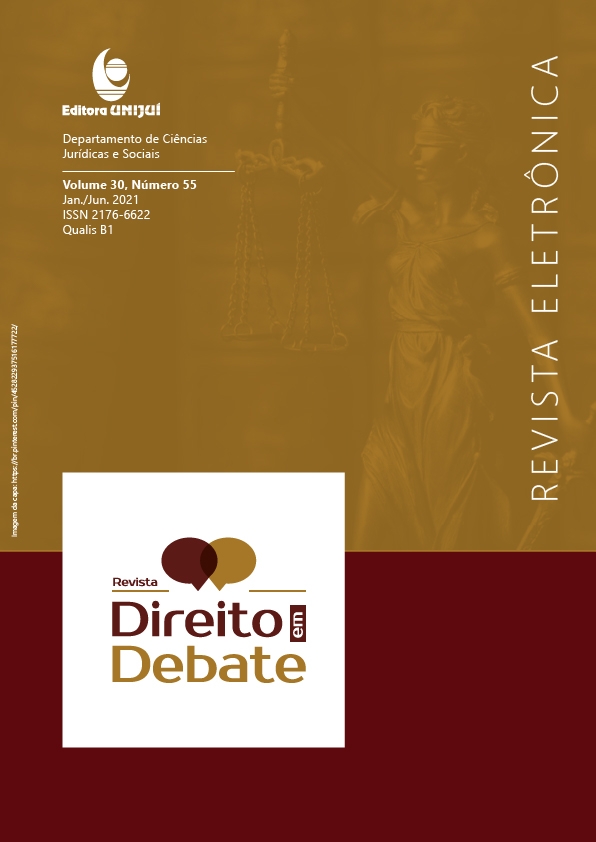ECONOMIC INEQUALITY AND POLITICAL RIGHTS IN RAWLS’ THEORY OF JUSTICE
AN ANALYSIS FROM THOMAS SCANLON
DOI:
https://doi.org/10.21527/2176-6622.2021.55.252-264Keywords:
Justice. Inequality. Participation.Abstract
The present article intends to problematize the way the issue of how socioeconomic inequalities and political rights are dealt with in the theory of justice originally formulated by John Rawls. It is well known that Rawls, in the decade of 1970, performed a revolution in the debates about distributive justice with the formulation of the theory that became known as justice as fairness, which is based in the proposition of two principles of justice, the first having priority over the second, in order to rule society’s basic structure. Very recently, however, a set of theoretical challenges to the liberal egalitarian tradition, to which Rawls is a major figure, was presented by Thomas Scanlon, in his proposal of attributing equality an intrinsic value. The aim of this work is to show how one of the issues raised by Scanlon, concerning political participation, can be capable of seriously compromising Rawls’s original proposal, in a way that the distribution prescribed by the principles themselves would break the priority between them. Firstly, we shall make a systematic study of how Rawls elaborates his two principles of justice and what is the place of equality within them, emphasizing the relevant elements to the subsequent analysis. Then, we shall try to demonstrate, starting from the point of view offered by Scanlon, how it is possible to find in Rawls a tension between the guarantee of a right to equal political participation to all, on the one hand, and the permission to socioeconomic inequalities, on the other.
Downloads
Published
How to Cite
Issue
Section
License
Autores que publicam nesta revista concordam com os seguintes termos:
a. A submissão de trabalho(s) científico(s) original(is) pelos autores, na qualidade de titulares do direito de autor do(s) texto(s) enviado(s) ao periódico, nos termos da Lei 9.610/98, implica na cessão de direitos autorais de publicação na Revista Direito em Debate do(s) artigo(s) aceitos para publicação à Universidade Regional do Noroeste do Estado do Rio Grande do Sul, autorizando-se, ainda, que o(s) trabalho(s) científico(s) aprovado(s) seja(m) divulgado(s) gratuitamente, sem qualquer tipo de ressarcimento a título de direitos autorais, por meio do site da revista e suas bases de dados de indexação e repositórios, para fins de leitura, impressão e/ou download do arquivo do texto, a partir da data de aceitação para fins de publicação. Isto significa que, ao procederem a submissão do(s) artigo(s) à Revista Direito em Debate e, por conseguinte, a cessão gratuita dos direitos autorais relacionados ao trabalho científico enviado, os autores têm plena ciência de que não serão remunerados pela publicação do(s) artigo(s) no periódico.
b. Autores mantém os direitos autorais e concedem à revista o direito de primeira publicação, com o trabalho simultaneamente licenciado sob a Licença Creative Commons Attribution que permite o compartilhamento do trabalho com reconhecimento da autoria e publicação inicial nesta revista.
c. Autores têm autorização para assumir contratos adicionais separadamente, para distribuição não-exclusiva da versão do trabalho publicada nesta revista (ex.: publicar em repositório institucional ou como capítulo de livro), com reconhecimento de autoria e publicação inicial nesta revista.
d. Autores têm permissão e são estimulados a publicar e distribuir seu trabalho online (ex.: em repositórios institucionais ou na sua página pessoal) a qualquer ponto antes ou durante o processo editorial, já que isso pode gerar alterações produtivas, bem como aumentar o impacto e a citação do trabalho publicado (Veja O Efeito do Acesso Livre).
e. O(s) A(s) autores(as) declaram que o texto que está sendo submetido à Revista Direito em Debate respeita as normas de ética em pesquisa e que assumem toda e qualquer responsabilidade quanto ao previsto na resolução Nº 510/2016, do Conselho Nacional de Ética em Pesquisa.
f. Os autores declaram expressamente concordar com os termos da presente Declaração de Direito Autoral, que se aplicará a submissão caso seja publicada por esta Revista.
g. A Revista Direitos em Debate é uma publicação de acesso aberto, o que significa que todo o conteúdo está disponível gratuitamente, sem custo para o usuário ou sua instituição. Os usuários têm permissão para ler, copiar, distribuir, imprimir, pesquisar, criar links para os textos completos dos artigos, ou utilizá-los para qualquer outro propósito legal, sem pedir permissão prévia do editor ou o autor. Estes princípios estão de acordo com a definição BOAI de acesso aberto.










